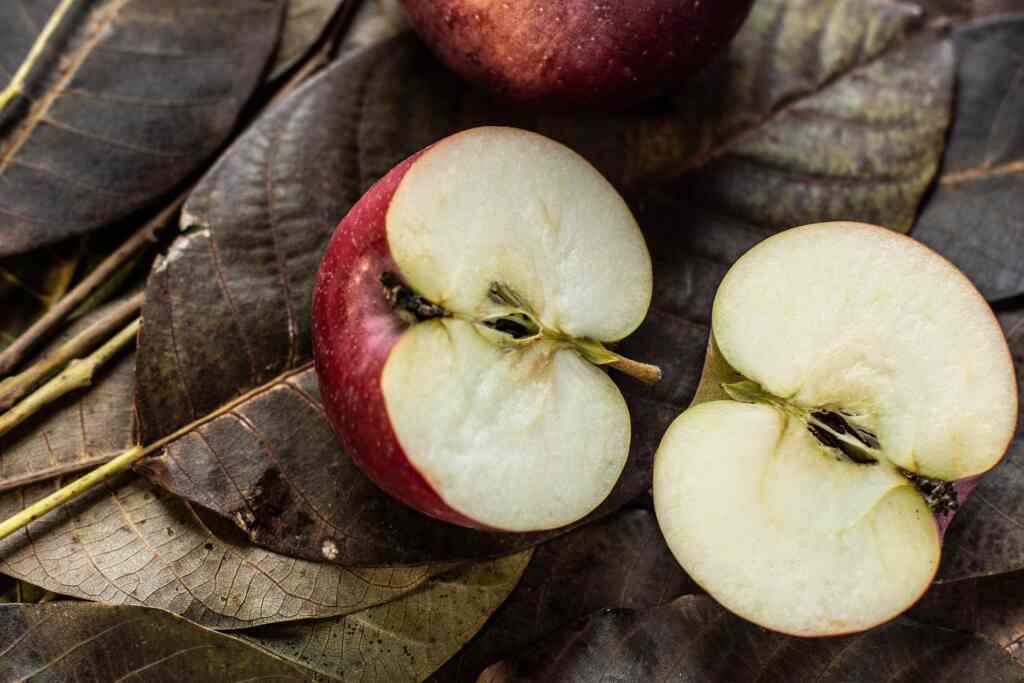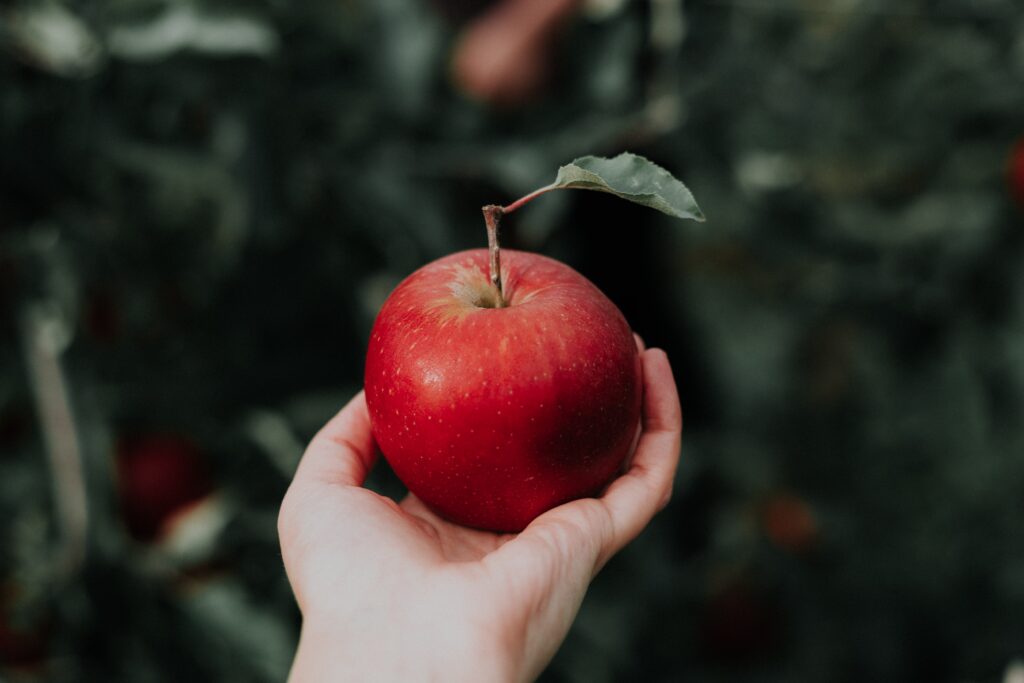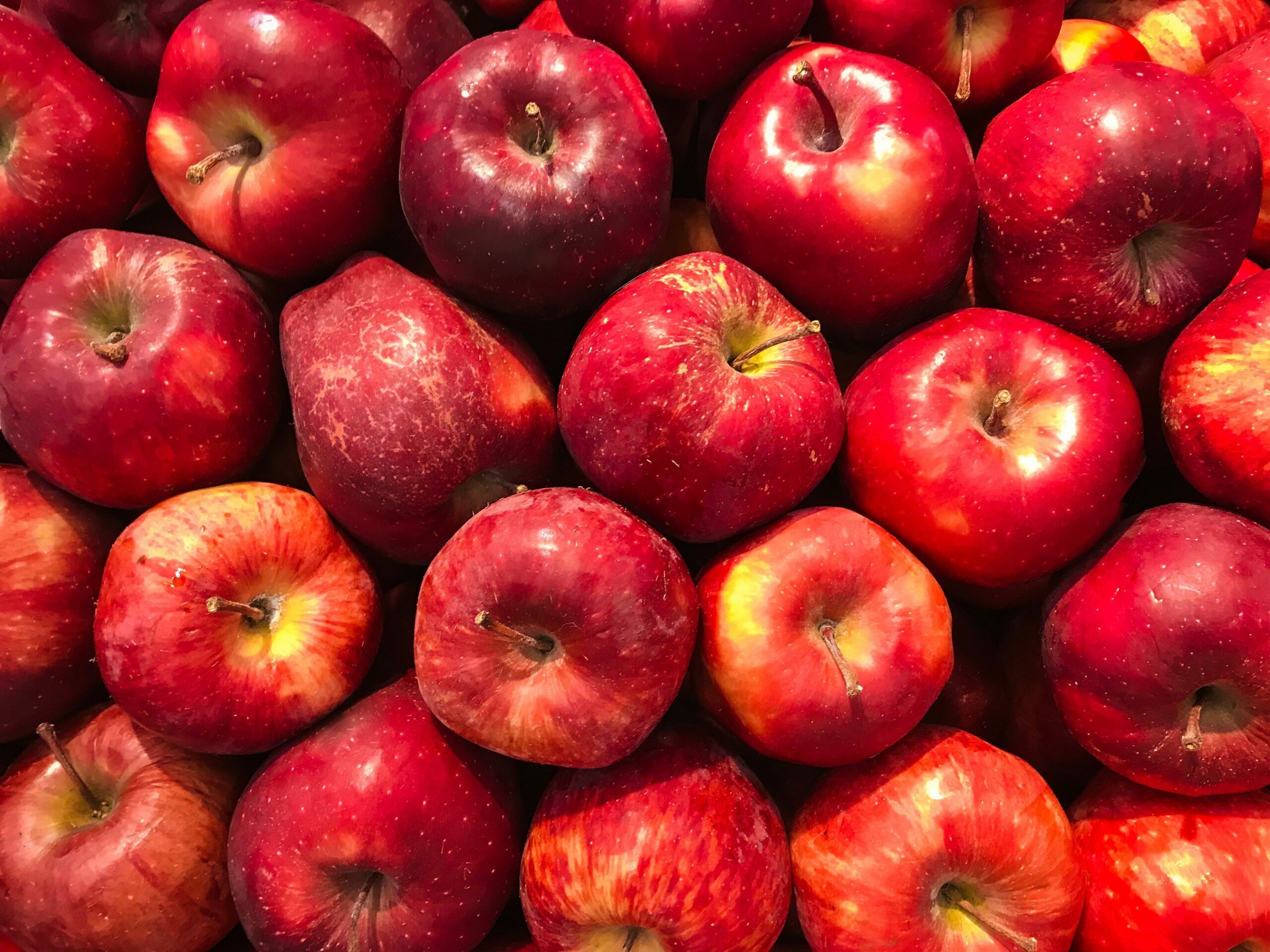Can we eat Apple at night?
Are you wondering if indulging in an apple before bedtime is a healthy choice? Look no further, as we dive into the question of whether or not you should eat apples before going to bed. Apples are a popular fruit known for their numerous health benefits, but does consuming them late at night have any potential drawbacks? Join us as we explore the advantages and potential disadvantages of adding this crunchy and delicious fruit to your evening routine. By the end, you’ll have a clearer understanding of whether eating apples before bed is a smart decision for your overall well-being.
Benefits of eating apple before bed time
Eating apples before bedtime can be a beneficial addition to your nighttime routine. Not only do apples taste delicious, but they also offer a host of benefits for improving sleep quality. One of the reasons why apples are a good choice before bed is that they are a great source of fiber. This fiber aids in digestion, preventing any uncomfortable bloating or indigestion that could disrupt your sleep. Additionally, the fiber in apples can help to prevent nighttime hunger pangs, ensuring that you stay satisfied until morning. Another advantage of eating apples before bedtime is the natural sugars they contain.
These sugars provide a steady release of energy throughout the night, helping to maintain your blood sugar levels. This can prevent any sudden drops in blood sugar that might wake you up and disrupt your sleep. By providing a slow and steady release of energy, apples can help you sleep more soundly and wake up feeling refreshed in the morning. Furthermore, apples are packed with antioxidants that can benefit your immune system while you sleep. These antioxidants can help to boost your immune function, protecting against common illnesses and keeping you healthy. By enjoying an apple before bedtime, you are nourishing your body and giving it the nutrients it needs to support a strong immune system.
In conclusion, eating apples before going to bed can have several positive effects on your sleep quality and overall well-being. The fiber in apples aids in digestion and can prevent nighttime hunger pangs. The natural sugars in apples provide a steady release of energy, helping to maintain blood sugar levels throughout the night. Apples also contain antioxidants that can boost your immune system while you sleep. So, if you’re looking for a healthy and delicious bedtime snack, reach for an apple and enjoy its numerous benefits.
Are apples a good choice for night-time snacking?
Apples are an excellent option for a nighttime snack due to their low calorie and high fiber content. This combination helps to curb hunger without adding unnecessary weight. Furthermore, the natural sugars in apples offer a gradual release of energy throughout the night, aiding in the regulation of blood sugar levels and promoting a more restful sleep. Another notable benefit of apples is the presence of a compound called quercetin, which has anti-inflammatory properties and has been linked to a reduced risk of chronic diseases. Lastly, the high water content in apples can be especially beneficial in keeping you hydrated during the night, particularly if you often wake up feeling thirsty. So, not only are apples a delicious choice before bed, but they also offer a range of advantages for your overall well-being.

Potential drawbacks of eating apples before sleep?
While eating apples before bedtime may offer numerous benefits, it’s important to consider some potential drawbacks. One concern is that consuming apples before bed may lead to indigestion and discomfort, making it difficult to fall asleep. Additionally, some individuals may experience an increase in blood sugar levels after consuming apples, which can disrupt sleep patterns.
Another consideration is that apples are a natural source of fiber, which can have a laxative effect on some people and potentially cause digestive issues during the night. Lastly, due to their high water content, eating apples before sleep may increase the frequency of waking up to use the bathroom. It’s essential to listen to your body and consider these factors before making apples a regular bedtime snack.
Alternative bedtime snacks to consider instead of apples
If you’re not a fan of apples or are looking for some variety in your nighttime snacks, there are plenty of other options to consider. Bananas, for example, are a great alternative as they contain magnesium and potassium that can help relax your muscles before bed. This can aid in achieving a more peaceful sleep. Additionally, Greek yogurt is a good choice as it is high in protein and can promote sleep by increasing the production of serotonin, the hormone that regulates sleep.
Almonds are another healthy snack option to consider, as they are a good source of magnesium, which can help improve sleep quality. Lastly, a cup of chamomile tea can be a soothing bedtime drink that promotes relaxation and helps you fall asleep faster. So, if apples aren’t your thing, there are plenty of other delicious and sleep-promoting options to choose from.
Expert opinions on consuming apples at night
Eating apples before bed can have several positive effects on your sleep quality and overall well-being. Apples are a good source of fiber, which aids in digestion and may help prevent nighttime indigestion or acid reflux. Additionally, the natural sugars in apples can provide a gentle energy boost before bed without causing a crash later on. This can help regulate blood sugar levels, preventing sudden spikes or drops during sleep. Furthermore, the high water content in apples can help keep you hydrated throughout the night, promoting restful sleep. So, if you’re looking for a healthy and satisfying bedtime snack, an apple might just be the perfect choice.
Individual Variability: Listening to Your Body
While scientific principles provide a foundation, individual variability cannot be ignored. Some people may have sensitive stomachs or specific dietary concerns that make eating any food, including apples, before bedtime uncomfortable. It’s crucial to pay attention to your body’s signals and adjust your eating patterns accordingly.

Apples and Sleep: The Melatonin Connection
Interestingly, apples seeds contain a natural compound called melatonin, a hormone that regulates sleep-wake cycles. While the melatonin content in apples is not as significant as in some other fruits like cherries, it’s present nonetheless. Some studies suggest that consuming foods rich in melatonin, even in small amounts, may support better sleep quality. So, having a small apple as a pre-bedtime snack might offer a dual benefit—providing essential nutrients and potentially aiding sleep.
Creative Apple Night-Time Snacks: A Healthy Twist
For those seeking a delightful night-time snack, apples offer endless creative possibilities. Sliced apples paired with nut butter provide a balance of carbohydrates, healthy fats, and protein. Baked cinnamon apples offer a warm, comforting dessert-like experience without the guilt. Additionally, a simple apple and yogurt parfait can satisfy sweet cravings while ensuring a dose of probiotics for gut health.
Frequently Asked Questions
Is it healthy to eat apples before going to bed?
Eating apples before bed can be a healthy choice as they are low in calories and high in fiber, helping to keep you feeling full throughout the night. This can prevent late-night snacking and promote weight management. Additionally, apples contain natural sugars that can provide a slow release of energy during sleep, which can prevent blood sugar spikes and crashes. This steady supply of energy can contribute to a more restful sleep and help regulate blood sugar levels. Furthermore, the high water content in apples can help keep you hydrated throughout the night, promoting better sleep quality. Adequate hydration is essential for overall health and can prevent issues like dry mouth or thirst disrupting your sleep. Lastly, apples are a good source of vitamins and minerals such as vitamin C, potassium, and antioxidants, which can contribute to overall health when consumed before bed. These nutrients support various bodily functions and can boost your immune system while you sleep. So, adding apples to your bedtime routine can provide numerous health benefits.
Do apples help you sleep better if eaten before bedtime?
Eating apples before bedtime can improve the quality of your sleep. Apples are a good source of fiber, which aids in digestion and can prevent discomfort that may keep you awake at night. Additionally, apples contain natural sugars that can provide a gentle boost of energy, helping you fall asleep faster. And to top it all off, the high antioxidant content in apples can have a calming effect on the brain and promote relaxation before bed. So, snacking on an apple before turning in for the night can be a smart choice for a restful sleep.
Can eating apples before bed cause indigestion or stomach discomfort?
While it is true that eating apples before bed can cause indigestion for some people, especially if they have a sensitive digestive system, it’s important to note that this is not the case for everyone. The high fiber content in apples may lead to stomach discomfort if eaten too close to bedtime, but again, this can vary depending on the individual. Individuals who are prone to acid reflux or GERD may experience worsened symptoms after consuming apples before going to bed. However, for most people, eating an apple before bed is unlikely to cause any indigestion or stomach discomfort. It’s always a good idea to listen to your body and pay attention to how certain foods affect you personally.
Should I avoid eating apples before bed if I have acid reflux or heartburn?
If you suffer from acid reflux or heartburn, it’s important to be cautious when it comes to eating apples before bed. While apples are generally considered a healthy snack option, they can exacerbate symptoms of acid reflux or heartburn. This is because apples can trigger the production of stomach acid, which may lead to discomfort and indigestion, particularly for individuals with these conditions. If you experience acid reflux or heartburn, it is advisable to avoid consuming apples close to bedtime to prevent potential discomfort and promote better digestion.
Are there any particular types of apples that are better to eat before sleeping?
Yes, there are certain types of apples that are better to eat before going to bed. Granny Smith apples, for example, are a great choice as they have a higher acidity level, which aids in digestion and can promote better sleep. The tartness of these apples can also help to satisfy your cravings without adding unnecessary calories. Additionally, Fuji apples are another good option for a nighttime snack. These apples have a high natural sugar content, which can provide a quick energy boost before bedtime. The sweetness of these apples adds a delightful flavor to your evening snack. Similarly, Pink Lady apples are known for their crisp texture and sweet-tart flavor, making them a delicious bedtime snack. So, if you’re looking to add some variety to your apple-eating routine, consider trying different types of apples to find your favorite nighttime treat.
Conclusion: An Apple a Day, Any Time of Day
In the grand debate of whether we can eat apples at night, the verdict is clear: yes, you can! Apples, with their nutritional richness, fiber content, and potential sleep-supporting properties, make for an excellent snack choice before bedtime. However, individual tolerance and preference should always guide your dietary choices.
So, the next time you find yourself peckish before bedtime, reaching for a crisp, juicy apple might just be the perfect solution. Whether enjoyed on its own or as part of a creative snack, this versatile fruit proves that health-conscious choices can be both nutritious and delicious, no matter the hour. After all, as the saying goes, an apple a day keeps the doctor away—regardless of whether it’s day or night.
This article is reviewed by Russel, before publishing. If you have any doubt, you can contact us or consult with your nearby doctor. Remember, in medical matters, there is no same advice, cure, and medicine for all.







